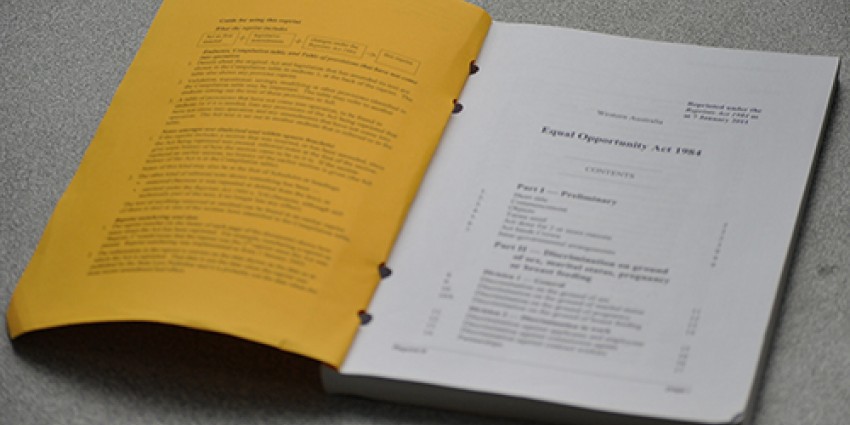
Often it is the complaint-handling service which receives the most interest, with the public generally more interested in incidents where discrimination is alleged to have occurred and an interesting outcome has been reached.
However, the complaint-handling service must remain confidential so that the conciliation process can work and often information is restricted to the parties involved.
That is why equal opportunity outreach about discrimination, harassment and victimisation is so important.
Equal opportunity training is provided by the Equal Opportunity Commission, by private sector training organisations, by the Australian Human Rights Commission, and by some of the other state equal opportunity commissions through on-line courses.
Education and training to inform people about their rights and responsibilities under equal opportunity legislation has the power to change attitudes on a large scale and shift negative workplace cultures.
Participants who attend training by Commission officers are requested to complete a pre and post training questionnaire to measure their level of knowledge of the Equal Opportunity Act 1984.
Of the participants who responded to the questionnaire in the 2019-20 financial year, prior to training 72 percent said they had poor to average knowledge of the Act, what unlawful discrimination was and what could be done about it.
After the training, 90.5 percent of participants said they had good to excellent knowledge of the Act, unlawful discrimination and what could be done about it.
There is also a correlation between community outreach and complaints lodged with the Equal Opportunity Commission.
Following community training and outreach to regional areas the Commission often records an increase in complaints from that region as people are better informed about what treatment is unlawful and what they can do to remedy it.
This is also the case with news reports in the media and social media campaigns.
Following Kristy Fraser-Kirks well publicised sexual harassment complaint against David Jones CEO Mark McInnes 2010, which did not involve the Commission, the Commission recorded an increase of 16% in sexual harassment complaints in the following two years.
The international #MeToo movement in 2017 saw similar results with sexual harassment complaints doubling in the 2017-18 financial year compared to the 2016-17 financial year.
With the international #BlackLivesMatter campaign receiving so much publicity last year following the death in police custody of George Floyd in Minneapolis in America and the recent media reports about race discrimination at the Collingwood Football Club, it will be interesting to see whether there is a similar impact.
To find out more about the Commission’s Community Education and Training program visit our website.


